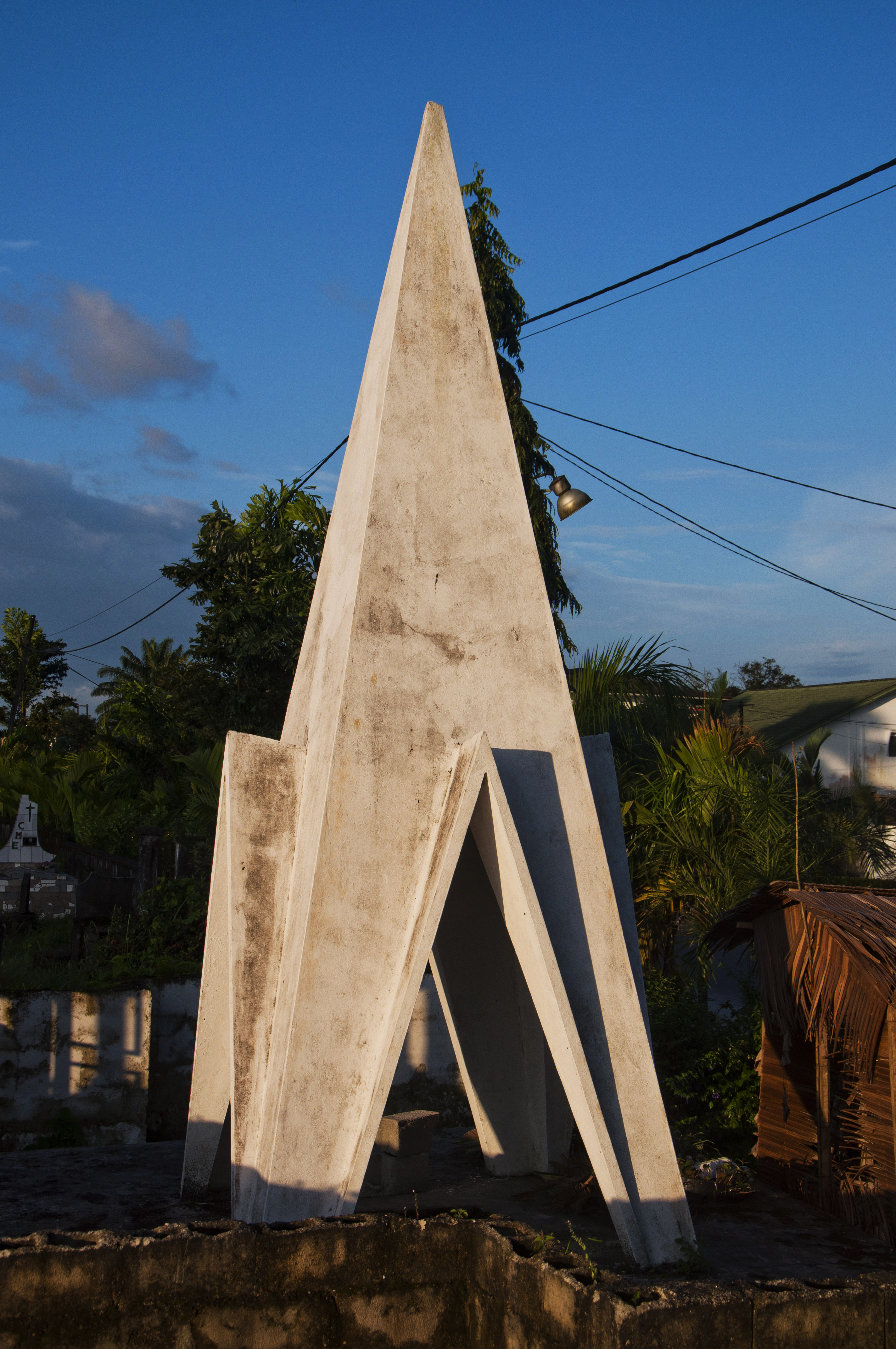Former police station of Douala on:
[Wikipedia]
[Google]
[Amazon]
The former police station situated in

 The police station is the site where King
The police station is the site where King
Former police station of Douala
'' in ''Douala Ville d'art et d'histoire'', doual'art, Douala, 2006.
Former police station of Douala
' in ''Douala Ville d'art et d'histoire'', doual'art, Douala, 2006.
Douala
Douala is the largest city in Cameroon and its economic capital. It is also the capital of Cameroon's Littoral Region (Cameroon), Littoral Region. Home to Central Africa's largest port and its major international airport, Douala International Ai ...
is a building constructed at the beginning of the 20th century by the Germans to serve as the first police station under the German mandate.
History

Rudolf Douala Manga Bell
Rudolf Duala Manga Bell (1873 – 8 August 1914) was a Duala king and resistance leader in the German colony of Kamerun (Cameroon). After being educated in both Kamerun and Europe, he succeeded his father Manga Ndumbe Bell on 2 September 1908. ...
and his assistant Adolf Ngosso Din
Adolf (also spelt Adolph or Adolphe, Adolfo and when Latinised Adolphus) is a given name used in German-speaking countries, Scandinavia, the Netherlands and Flanders, France, Italy, Spain, Portugal, Latin America and to a lesser extent in vari ...
were sentenced to death and hung. Both men has been sentenced following their staunch opposition to the June 1910 Decree issued by Governor Ebermaier and ordering the expropriation and resettlement of natives from Joss, Bonapriso, Akwa and Deïdo. The Germans decided to seize the land along the banks of Wouri River
The Wouri (also Vouri or Vuri) is a river in Cameroon. Cameroon has two major rivers, the Sanaga, the longest at about 525 km (325 miles) long and the Wouri, the largest. The Wouri forms at the confluence of the rivers Nkam and Makombé, ...
, thus violating the sovereignty clause which left the land to the natives as specified in the treaty signed on July 12, 1884 between the Duala Kings and German authorities. On the other hand, a one-kilometre buffer zone or “Freie Zone” was established between the Whites and the Blacks. Rehousing sites were then created for displaced people: Neu Bell, Neu Akwa, and Neu Deïdo.
From 1912 to 1914, commissioned by the Ngondo Vernacular Council, Rudolf and his assistant called for general mobilization in Cameroon and in Germany in order to defend their rights before the Reichstag, the German parliament. Nevertheless, the first expropriations began in December 1913. In May 1914, under the premise of a false document said to have been issued by King Bell and addressed to Sultan Njoya, which allegedly pleaded for an alliance with England, both protesters were caught, held in custody within this police station, sentenced for treason and hung on August 18, 1914. Only this stump is left of the tree from which they were hung. The First World War had just started in Europe. As hostile war ships sailed towards Cameroon, the Germans speeded up the trial in order to face the expected assaults from the enemy. At the same time, in an attempt to neutralise growing internal opposition, 180 natives were hung shortly after Rudolf and Ngosso Din. In September 1914, with the help of Duala canoeists, French and English troops got into the channel blocked with vessels the Germans had wrecked.
This edifice now hosts the merchant navy services.
In 2006 the building is highlighted by an urban sign produced by doual'art
doual'art is a non profit cultural organisation and art centre founded in 1991 in Douala, Cameroon and focussed on new urban practices of African cities.
History
doual'art was registered as a non profit organization in 1992 and it was establish ...
and designed by Sandrine Dole; the sign presents an historical image of the building and a description of its history.Former police station of Douala
'' in ''Douala Ville d'art et d'histoire'', doual'art, Douala, 2006.
See also
*Kamerun
Kamerun was an African colony of the German Empire from 1884 to 1916 in the region of today's Republic of Cameroon. Kamerun also included northern parts of Gabon and the Congo with western parts of the Central African Republic, southwestern p ...
References
Further reading
*Former police station of Douala
' in ''Douala Ville d'art et d'histoire'', doual'art, Douala, 2006.
External links
{{Commons category, Former police station in Douala Buildings and structures in Douala